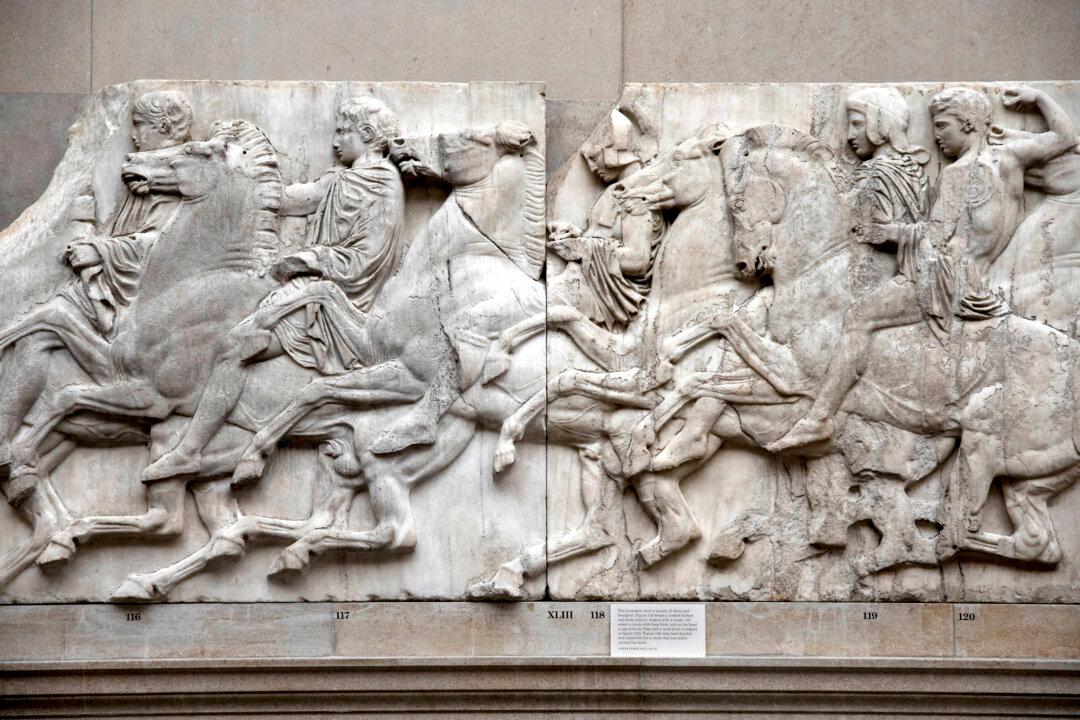One of the world’s leading historians has rejected claims the Elgin Marbles were illegally removed from the Parthenon in Athens and has recommended they not be loaned back to Greece unless they accept the British Museum’s ownership of the sculptures.
The Greek government has been campaigning for decades for the 2,500-year-old artefacts—sometimes referred to as the Parthenon Sculptures—to be returned to Athens, but the 1963 British Museum Act prevents objects being removed from its collection except in very limited circumstances.





